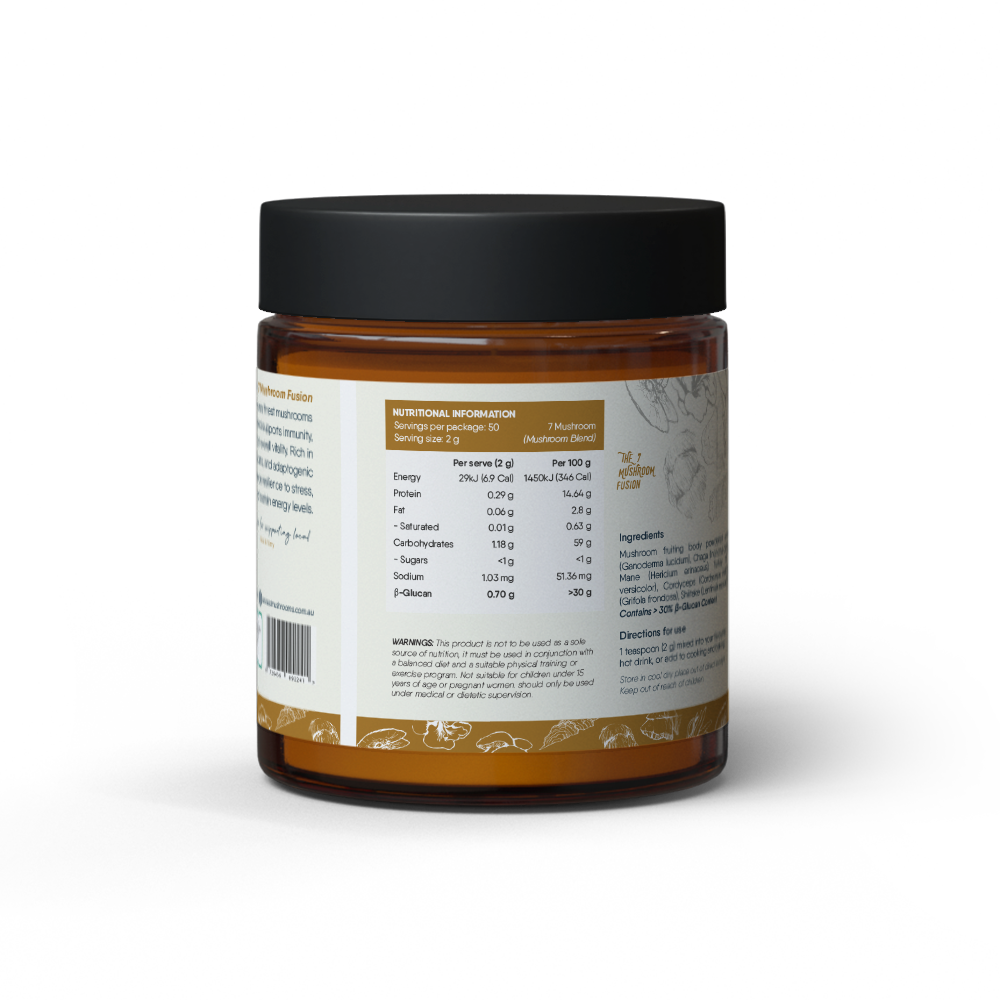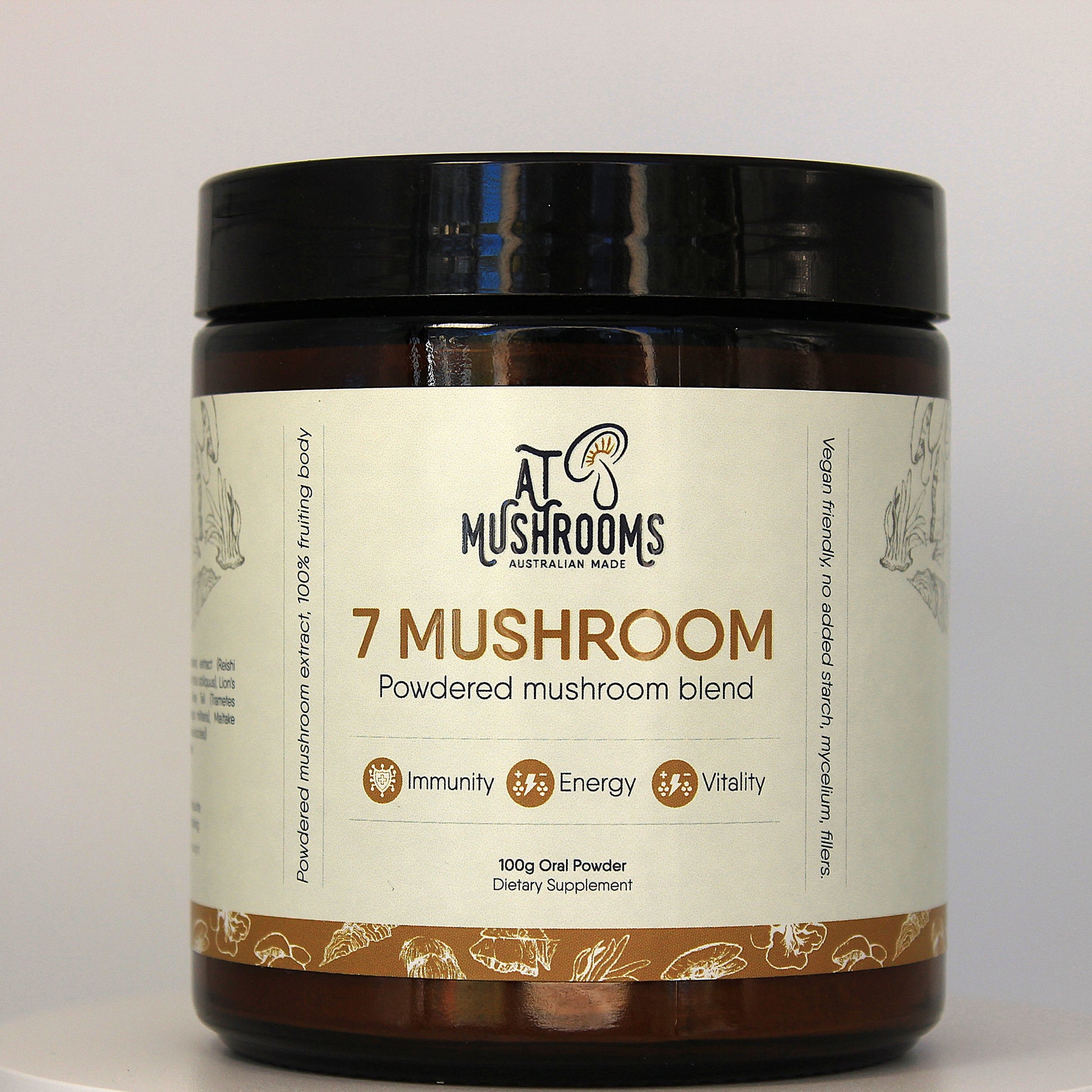Maitake (Grifola frondosa)
Primarily used in cooking, the Japanese "dancing mushroom" (hen-of-the-woods) grows at the base of old-growth oaks and maples in late summer to early autumn. Easily identifiable by its cluster of grayish-brown curled or spoon-shaped caps, it's common to Japanese and Chinese cuisine.
- Like other mushrooms, this fungus has an impressive health profile, being credited with:
- Anticancer properties
- Cholesterol reduction
- Obesity prevention
- Blood sugar control
-
Anti-inflammatory effects
Anticancer properties
- G. frondosa contains several health-boosting minerals and compounds, including antioxidants, vitamins B and C, amino acids, copper, potassium, and more. However, it is the beta-glucans, called the maitake D-fraction, that exhibit strong anticancer effects. Numerous studies confirmed these findings.
In 1997, mice bearing breast cancer cells were fed with food containing 20% mushroom powder. After one month, total remission was observed in four out of ten maitake-fed mice, while the other six saw almost 90% suppression rates31.
Five years later, a study in cancer patients aged 22- to 57-years old saw cancer regression or significant symptom improvement in 58.3% of liver cancers, 68.8% of breast cancer, and 62.5% of lung cancer after D-fraction alongside chemotherapy. The fungus was 1.2-1.4 times more effective than chemotherapy alone32.
A 2013 study also confirmed these findings in breast cancer patients, suggesting that the fungus suppresses certain genes involved in cancer growth33.
Cholesterol reduction
Cholesterol-reducing effects were observed in a 2001 and 2013 study of maitake. The former saw higher cholesterol excretion in rats34, while the latter identified the same effect in mice, identifying the suppression of genes associated with cholesterol synthesis following cholesterol intake35.
Obesity prevention
The anti-obesity effects of G. frondosa appear, once again, to its genetic effects. This time, the fungus lowered total blood cholesterol levels in diet-induced obese mice and upregulated certain genes associated with improving glucose intolerance36.
Another study identified other gene responses for its anti-obesity and antioxidant activities, concluding that it should "be considered a potential functional ingredient for the prevention of obesity-related disturbances37." Which, in science-speak, is as glowing an endorsement as you can get.
Blood sugar control
Like other benefits, we've only got animal studies to go on. Researchers in 2015 demonstrated maitake helps balance glucose levels in rats with type 2 diabetes38. Meanwhile, an earlier study identified similar findings, with the fungus's α-glucan helping everything from blood sugar levels to overall body weight39. It may even reverse the underlying cause of type 2 diabetes: reduced insulin sensitivity.
Anti-inflammatory effects
Among the key benefits of mushrooms is their anti-inflammatory properties. Maitake is no exception. It shows anti-inflammatory properties due to its rich antioxidant profile and the inhibition of COX activity, meaning it works similarly to common anti-inflammatory drugs like Advil (ibuprofen)40. Other studies have highlighted the β-glucans (D-fraction) as key to its soothing effects, considering its strong immunomodulatory activity41.
Related Mushrooms for Brain & Overall Health
Lion's Mane works synergistically with other medicinal mushrooms to support comprehensive wellness:
- Reishi - Reduces stress and improves sleep quality, creating optimal conditions for cognitive function
- Cordyceps - Enhances energy and mental clarity to complement Lion's Mane's cognitive benefits
- Turkey Tail - Supports immune system health for overall wellness
- 7 Mushroom Blend - Experience the combined power of Lion's Mane with six other premium mushrooms
Learn More About Medicinal Mushrooms
Expand your knowledge with our educational resources:
Deep dive down the mycelium rabbit hole and learn about the benefits of all the mushrooms by reading scientific studies from around the world.











